VOL- 3 ; ISSUE- 4, PUNE RESEARCH - An International Journal in English (ISSN 2454-3454) JIF 2.14
3.4 ENGLISH
Area of Article : ALL
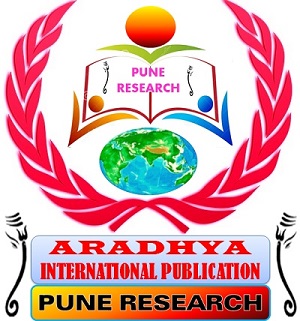
VOL- 3 ; ISSUE- 4, PUNE RESEARCH - An International Journal in English (ISSN 2454-3454) JIF 2.14
3.4 ENGLISH

VOL- 3 ; ISSUE- 4, PUNE RESEARCH - An International Journal in English (ISSN 2454-3454) JIF 2.14
3.4.1 ENGLISH
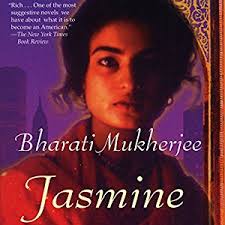
In mythology and literature, a quest,is a journey towards a goal, serves as a plot device and (frequently) as a symbol. Quests appear in the folklore of every nation and also figure prominently in non-national cultures. In literature, the objects of quests require great exertion on the part of the hero, and the overcoming of many obstacles, typically including much travel. The aspect of travel also allows the storyteller to showcase exotic locations and cultures (an objective of the narrator, not of the character)
Keywords: Quest, identity, survival, existence,bonding
VOL- 3 ; ISSUE- 4, PUNE RESEARCH - An International Journal in English (ISSN 2454-3454) JIF 2.14
3.4.2 ENGLISH

It is mandatory to study the Learning Disability (LD) and its types for effective teaching. It is evident that the LD students are growing in number and every classroom faces challenges to teach them effectively. It is a proved fact that these children have high IQ and the learning style makes them to struggle in the traditional way of learning. This paper presents the features of Learning Disability and its types in detail.
Key words : Learning Disability, Specific Learning Disability.
VOL- 3 ; ISSUE- 4, PUNE RESEARCH - An International Journal in English (ISSN 2454-3454) JIF 2.14
3.4.3 ENGLISH
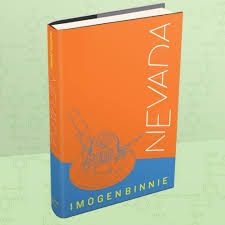
Imogen Bennie’s Nevada is a fiction written about trans woman, for trans woman and by a trans woman. Trans woman in reality are different from trans woman portrayed on television. The author has strikingly replicated the inhibition of society. The plot sketches in detail the dark story of Maria Griffiths, a young trans woman living in New York City. The whole novel is about how Maria, the central character, has to live a life past-transition. The desire of self- destruction always creeps into her mind and the knowing of self is gained in the light of others’ tranmutation. Maria sets out on a journey that will most certainly change her forever.
Key words: Journey, Trans, Atonement, Betrayal
VOL- 3 ; ISSUE- 4, PUNE RESEARCH - An International Journal in English (ISSN 2454-3454) JIF 2.14
3.4.4 ENGLISH

Cinema or motion picture is the art of moving images is visual medium that tells stories and exposes reality.”Cinema is a matter of what’s in the frame and what is out”Actually in realistic Cinema, one can never predict what will happen. It is a reflection of life and society Hero, Heroine, comedians and Music Directors art directors, photography and songs makes the movie successful. The word cinema has power of magic to arouse excitement and entertainment among elders, children and ,youngsters. If it is realistic cinema the public is interested to watch the movie. Cinema is an imitation of life.
VOL- 3 ; ISSUE- 4, PUNE RESEARCH - An International Journal in English (ISSN 2454-3454) JIF 2.14
3.4.5 ENGLISH

Great literature has the ability to transform and sow the seeds of courage and build knowledge. Indian English literature is also nevertheless a gala of the transcended modern India reflecting the various shades of globalisation. Of late, the realistic, modernistic, pessimistic mode of the first three decades of post-independence writing is giving way to a non-representational, experimental, self-conscious and optimistic literature. Sanyal (1987) too claims that Indian writing represents a new form of Indian culture. It has been assimilated and even became a dynamic element of the culture. Meanwhile, the themes of hybridity and multi-rootedness have become increasingly prevalent in literary texts. Many Indian English novelists like Raja Rao, Kamala Markandaya, Anita Desai, Bharati Mukherjee, Salman Rushdie, Amitav Ghosh, Rohinton Mistry, Vikram Seth etc. reside in the west. Even those who live in India like Sasi Tharoor and Arun Joshi are products of different cultures, residing in one, educated in another, moving from one country to another, partaking different cultures and presenting what Will Kymlicka calls a “multicultural citizenship” in a globalized world.
VOL- 3 ; ISSUE- 4, PUNE RESEARCH - An International Journal in English (ISSN 2454-3454) JIF 2.14
3.4.6 ENGLISH
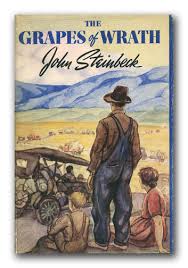
Ecohumanism is a social and political movement. It is a combination of Ecocriticism and Humanism. It equates human and nature because both have been dominated and exploited by man. John Steinbeck, a celebrated writer and Nobel Prize winner of America, portrays his concern for nature and human in many of his works. His most famous novel, The Grapes of Wrath presents a realistic account of the sufferings of nature and human by man and technology. This paper is an exploration of the ecohumanist elements in the novel. Steinbeck manipulates plot and character to weave in his ecohumanist concerns. He stresses the interdependence of man and nature.
Keywords: Ecocriticism, Ecohumanism, Man and Nature
VOL- 3 ; ISSUE- 4, PUNE RESEARCH - An International Journal in English (ISSN 2454-3454) JIF 2.14
3.4.7 ENGLISH

Human race have always attached queerness to the lesser known, which however could be traced in its attempt to address the issues of alternate gender and sexuality. The hegemonic heterosexual community in order to homogenize heteronormativity have deliberately unaddressed the existence and essence of the homosexual communities. Whenever the queer body found a space in popular media or art, ‘the heterosexual gaze’ objectified and reduced them either as an object to be ridiculed or as beings who are driven by carnal desires. Often the queer bodies are misrepresented in mainstream media as they were heterosexual representations of homosexuals. Homomorphism, an art exhibition by five keralite queer artists explore the possibility of celebration of queer bodies, which scarcely have found its place in visual frames, thereby eradicate pseudo taboo and dismal notions attached with homosexual body and same sex love. This paper focuses on the counter resistant mechanisms employed by queer world in the realm of art by transforming their body as an active resistant tool rather than a passive ground of subjection to subvert the ‘heterosexual gaze’ into homosociality.
VOL- 3 ; ISSUE- 4, PUNE RESEARCH - An International Journal in English (ISSN 2454-3454) JIF 2.14
3.4.8 ENGLISH

Novelist, short-story writer and poet Ben Okri (born in 1959 in Minna, Northern Nigeria) is a prolific and innovative, and completely at home in many modes of writing. Ben Okri has creatively experimented with new literary forms, different styles, genres and traditions. Taken together, Okri’s fiction represents one of the most significant explorations of literary form in the canon of postcolonial African literature. Traditionally magical realism fuses a realistic narrative with mythical one. However, this paper examines that in Ben Okri’s works there is not only fusion of realism and myth, but bold imagination, use of exaggeration and hyperbole, fantastical and metaphorical elements, detailed description of uncanny events, and exploration of limited zones and continually transforming characters. The paper reveals that Okri sees the magical events as an African form of realism in which the magical world is part of the real world and something that exists next to real world. The paper presents how, through his fictional and non-fictional works Okri charts new direction for African literature in strategies, techniques and presentation for depiction of the social, political and economic situation of postcolonial Nigeria and Africa. Okri uses metaphorical frames to present the notion of postcolonial politics in Africa. He uses them to present the social relationship that exists between Africa and the West.
Keywords: Novelist, Poet, Myth, Realism, Magical world.
VOL- 3 ; ISSUE- 4, PUNE RESEARCH - An International Journal in English (ISSN 2454-3454) JIF 2.14
3.4.9 ENGLISH

In Indian culture, mythological texts or representations hold considerable importance for being rich not only in spiritual worth but in aesthetic value too. Richard Chase defined “Myth as an aesthetic device for bringing the imaginary but powerful world of preternatural focus into a manageable collaboration with the objective/i.e. experienced/facts of life in such a way as to excite a sense of reality amenable to both the unconscious passions and the conscious mind.” (qtd. in Bruner 1960: 276) This capability of art to express emotional sentiments is referred to as Rasa in Sanskrit. Therefore, we have many writers in Hindi and Sanskrit discussing the beautiful forms of Lord Krishna or Rama or their devotional experiences with immense sensual appeal as a Rasa poetry, another name for aesthetics, precisely in poetry.
VOL- 3 ; ISSUE- 4, PUNE RESEARCH - An International Journal in English (ISSN 2454-3454) JIF 2.14
3.4.10 ENGLISH
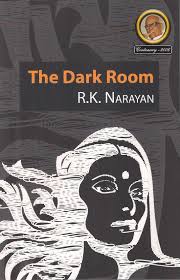
VOL- 3 ; ISSUE- 4, PUNE RESEARCH - An International Journal in English (ISSN 2454-3454) JIF 2.14
3.4.11 ENGLISH
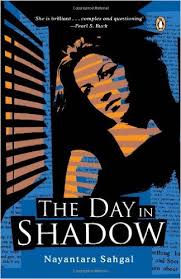
The Day in Shadow is Nayantara Sahgal’s fourth novel and one that can be considered almost autobiographical in nature. It is an honest depiction of the trials and tribulations of a divorced woman borne out of the author’s bitter personal experiences. The novel also revolves around a male Protagonist Raj who believes ardently in the concept of freedom and refuses to take things passively. The other protagonist is the vibrant young capital of a newly born independent nation, Delhi which acquires a character of its own to change the destinies of people .The Sunday Times in its review mentions about the author , “ She is a moral writer-though not a moralist. She sees art as all great artists of the past have seen it, as (among other things) an instrument for discerning and affirming the difference between the right and wrong, Very refreshing.” The paper attempts to review the novel at various levels to decipher the autobiographical elements, decode the social history of Post Independent India with a colonial past.
Keywords : Autobiographical, Post colonial, Post Independent
VOL- 3 ; ISSUE- 4, PUNE RESEARCH - An International Journal in English (ISSN 2454-3454) JIF 2.14
3.4.12 ENGLISH
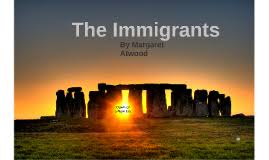
Canada is a multiracial and attracts people from many parts of the world. The immigrant community cut off from its native culture and settled in Canada has to face the problem of adjustment to a new environment and culture. It has been noticed that there were changes in natural environment involving ecological changes and also changes in social and political climates. The reaction against colonial domination and the French-English conflict have generated a great deal of changes in the socio-cultural climates of the country. The impact of the great world has already caused many great changes in social environment. Racial discrimination is found in Canada, a country which adopts multiculturalism. People realize that life in an alien land is not smooth and pleasant. The dilemma of assimilation and assertion leads to much complications.
VOL- 3 ; ISSUE- 4, PUNE RESEARCH - An International Journal in English (ISSN 2454-3454) JIF 2.14
3.4.13 ENGLISH
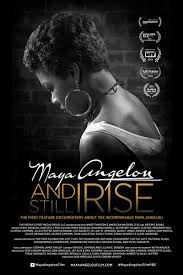
Patriarchy concerns with masculinity and its privilege over property and woman sexuality. Patriarchy celebrates heterosexuality, female fertility and motherhood. The ‘patriarchy’ term is widely used in the 1970s, especially in England and the United States of America. In several cultural and social context and different historical periods, women expressed their anger and indignation over the manner in which they suffered misery, privation and injustices at the hands of men-in poetry, song and in stories that were passed down the generations from mother to daughter. Such expressions were direct as well as oblique and found in literatures across the African American Black Literature in form of folk songs, poetry, fairy tales, and religious poetry.
VOL- 3 ; ISSUE- 4, PUNE RESEARCH - An International Journal in English (ISSN 2454-3454) JIF 2.14
3.4.14 ENGLISH
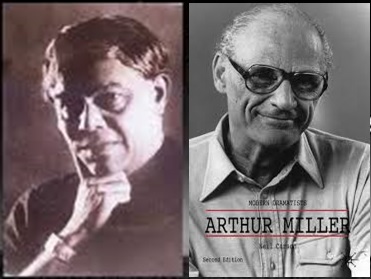
Realism as a literary technique and an art is used by so many writers and artists to present things in a realistic way.Realism is a word originated from English which means “factual”, “actual” or true. A way of seeing, accepting and dealing with situations as they really are without being influenced by your emotions or false hopes and a style in art or literature that shows thing and people as they are in real life. The question ‘what is realism?’ has been passing from one generation to another generation without finding proper solution. The concept has changed from time to time becoming complex. Some opine that the words’ truth’ and ‘nature’ are similar. In this process of analyzing the life of a man, different types of ‘Realism’ come in to existence. Greek dramas are analysed with ‘cosmic realism’, which judges the man’s situation beyond the physical powers of the world.
VOL- 3 ; ISSUE- 4, PUNE RESEARCH - An International Journal in English (ISSN 2454-3454) JIF 2.14
3.4.15 ENGLISH
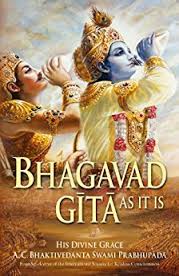
In the present century, there are various issues that perturb people all over the world. For instance, the mass murder of people in the name of race, religion, caste. There are multitudes of such reasons for people to fight against each other. The main reason for an increase in such incidents is the ignorance of ethical and moral values as well as the deterioration of moral values among people. Hence there is a growing need to teach ethics, especially to the young adult learners who are in their late teens. The main purpose of teaching ethics is to impart ethical values among the learners and also to make them aware of the good and bad, in turn, which will make them better citizens and more than that a better human in the globe. These ethical values could be inculcated through Bhagavad Gita, one of the most valued books of the Hindus. It has the teachings of Lord Krsna to Arjuna on the battlefield. Though superficially it appears to be an advice to the confused warrior to boost his morale, it has a universal theme of doing one's duty without expectation and moreover, it moves beyond class, culture and other differences. For the present study, Chapter II, III, VI, and XII were taken. The paper focuses on the moral values that could be taught using the above-mentioned chapters from Bhagavad Gita. It further stresses the point some chapters from the book should be incorporated into the textbooks as a part of the curriculum of Ethics, thus bringing a positive outcome among the learners.
Key Words: Discipline, Duty, Self- Sacrifice, Non-violence, Peace, Moral values
VOL- 3 ; ISSUE- 4, PUNE RESEARCH - An International Journal in English (ISSN 2454-3454) JIF 2.14
3.4.16 ENGLISH
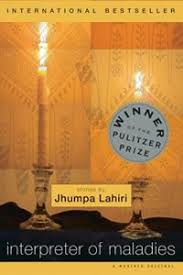
This paper focuses on how Racialization impacts the identity formation of the South Asian American characters in Jhumpa Lahiri’s ‘Interpreter of Maladies’. In particular, the focus is on the effects of Racialization in three of the ten stories from Interpreter of Maladies namely “When Mr.Pirzada Came to Dine”, “ Interpreter of Maladies”, and “Sexy”, because they encompass a variety of relationships and points of view. The analysis on three stories comprehends the complexities involved in the lives of people settled in an alien land. They find themselves “Misfits” both in their native land as well as in their living land. Colour serves as the mark of identity for the characters in Lahiri’s three novels. Through her characters and their experiences, Jhumpa Lahiri has debunked the Myth that ‘Race’ is the determining factor of identity.
VOL- 3 ; ISSUE- 4, PUNE RESEARCH - An International Journal in English (ISSN 2454-3454) JIF 2.14
3.4.17 ENGLISH
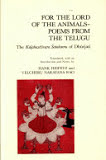
The paper is an attempt to understand the anguish of Dhurjati in his desire to reach the abode of God as depicted in The Voice of Dhurjati (1977) a translated version of Sri Kalahastiswara Satakam. In his Satakam, Dhurjati showed a complete abandonment to the worldly pleasures, which he enjoyed under the patronage of the great Vijayanagar emperor, Sri Krishnadevaraya. The Voice of Dhurjati by Bulusu Venkata Subbarao ( 1938-1990) is a commendable attempt by the translator to bring out the beauty of Satakam in a simple and expressive metrical English version to Telugu and other readers. One can see the complete devotion of the translator to Lord Siva besides his admiration to Dhurjati. Some other published works of Sri Bulusu Venkata Subbarao include On The Seventh Hill, The Song of Belgaum, Muktadhara , Khatwanga besides a collection of unpublished poems. He won many national awards and an honorary doctorate for his contribution to literature. It is to be noted that all the verses quoted in the paper are the translated verses of Dr Bulusu Venkata Subbarao in The Voice of Dhurjati.
VOL- 3 ; ISSUE- 4, PUNE RESEARCH - An International Journal in English (ISSN 2454-3454) JIF 2.14
3.4.18 ENGLISH
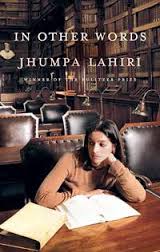
Over many centuries there has been whopping in migration and it reaches at its new apogee due to globalization, internationalization and the act of migration is a production of self imposed or forced emigration and it acutely underlines socially, politically place of refugees, exiled population. The exiled or dispersed communities are bound to the former homeland and they even feel a sense of isolation in alien land and Indian writers and poets portray this picture in their writing. Many Indian diasporic writers explore various themes such as, issues of migration, self-exploration, self identity, exilic experiences, and cultural differences in their writing. Jhumpa Lahiri has been writing for a few years on migration very effectively as a voice of Indian migrants. In other words displays the umbilical attachment of the protagonist with her homeland. Jhumpa lahiri shows a glimpse of diasporic consciousness throughout the novel In Other words. The prime aim of research paper is to exhibit the deep layer of diasporic consciousness from the perspectives of Jhumpa Lahiri in the novel In the Other Words and the research paper also attempts to analyze exilic experiences and linguistic identity.
Key words: Exile; longing for homeland; past memories: boundary restoration; restoration of homeland.
VOL- 3 ; ISSUE- 4, PUNE RESEARCH - An International Journal in English (ISSN 2454-3454) JIF 2.14
3.4.19 ENGLISH

As with any technological development the use of computers has the possibility of dehumanizing the learning process. Hwang(2003) investigated whether there is evidence to prove that the effect of computers on the personality of students is significant, espically for the more nervous Students. However Letterie (2003) has observed that typically only a small percentage of students from the both the upper and lower ends of the education stream receive any personal attention from the teacher, and direct interaction between teacher and many students up to secondary level, and in some cases beyond that level, is limited or non-existent. In addition, learners within higher education are progressively expected to be independent and autonomous learners. Therefore, there is a supportive role that e-learning, if properly integrated, can play to enhance the mutual benefit of all stakeholders.
VOL- 3 ; ISSUE- 4, PUNE RESEARCH - An International Journal in English (ISSN 2454-3454) JIF 2.14
3.4.20 ENGLISH
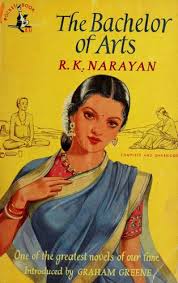
The depiction of real life situations or truth in the surrounding reflected in art is known as realism. In the mid 19th century, realism came into being in the art in European canon rejecting the Romanticism, artificiality, fantasy and exaggerated emotionalism. But in India it begins in the early 20th century, when it was going to close in the European canon. It was the rebirth of Realism in the fertile ground of Indian literary canon. Indian literary artists explored the theme very effectively in their works. Being a part of the rustic and orthodoxical society, Indian scholars depicted the truth throughout their writings. They portrayed Indian life as it is and truthfully in their fiction, which is the most popular form of writing in Non-European literary sphere. The Indian trio of the English fiction: Mulk Raj Anand, R. K. Narayan and Raja Rao are the notable scholars for the rebirth of Realism in Indian writing in English. At the respective time Indian society was suffering from so many injustices and these writers along with many others sympathetically reacted towards these. Narayan in his most of the novels portrayed the truth in the surrounding society as in his The bachelor of Arts (1936). He discussed the real situations in the life of Chandran, a representative of Indian youth.
Key-words: Realism, Romanticism, exaggeration, orthodoxical, tradition, real life situations
VOL- 3 ; ISSUE- 4, PUNE RESEARCH - An International Journal in English (ISSN 2454-3454) JIF 2.14
3.4.21 ENGLISH
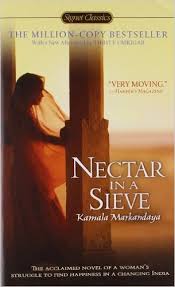
Of all the contemporary Indian Novelists writing in English, Kamala Markandaya occupies a distinguished position both in respect of her handling of a foreign medium and her authentic portrayal of the Indian scene The kaleidoscope of Indian life presents visuals of tradition and modernity, continuity and change, spiritual faith and rational stance. The western culture has associated to a considerable extent into the fabric of Indian life and culture.Infact the western culture has gradually entered into the mainstream of Indian life.Kamala Markandaya have articulated how the Westernculture interacts with Indian culture through the ambivalence of tradition and modernity.Kamala Markandaya presents the theme of Tradition and Modernity very aptly in Nectar in a sieve. Modernity is portrayed in the form of tannery, how the traditional people of village suffer from the tannery, and how it has affected the livesof the villagers has very clearly been portrayed by Kamala Markandaya through the main protagonists Rukmani and Nathan.
Keywords: Adversity, derogate, disintegration, eviction, humanitarian, industrialization, invasion, modernization, philanthropist andtradition.
VOL- 3 ; ISSUE- 4, PUNE RESEARCH - An International Journal in English (ISSN 2454-3454) JIF 2.14
3.4.22 ENGLISH
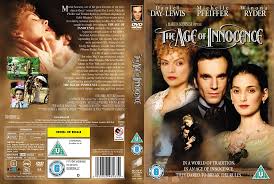
As for as researchers’ concern, most of the countries represent that women are dominated by men at various levels. The levels can be explained in terms of social behaviour, dress code, food habit, speech patterns, thought, sex, etc. the men state or argue to justify their domination; they have replaced the concept as Culture. Hence, the words feminism and culture together function prominently in literature. In some contexts, a woman dominates women or vice-versa. For example, socially well-developed or elite women dominates poorer or others for showing their power on various reasons. So, it is one of the most important and interesting topics for many American writers particularly novelists. Along with male novelist, women novelists have also started to create their permanent mark in writings. Thus, this paper deals with one of the well-known American woman novelists named, Edith New Bold Jones Wharton (1862 – 1937). She grants many women protagonists’ characters in her popular novels. Among them, one of the famous novels of Wharton is, The Age of Innocence.It represents the shadow of the nation’s various conditions on men and women. The main theme of the select novel is the conflict between personal desire and social obligation of various concepts in American culture.
Keywords: Culture, domination over women, desire and social obligation
VOL- 3 ; ISSUE- 4, PUNE RESEARCH - An International Journal in English (ISSN 2454-3454) JIF 2.14
3.4.23 ENGLISH

The major drawback in foreign language learners is poor pronunciation. It is very difficult to listener to understand the conversation by a non native speaker speaking a foreign language particularly like English. The poor pronunciation makes frustrating and unpleasant. The responsibility of correction of these drawbacks is on Language teachers. Unfortunately they realized it very lately and now try to introduce them at higher education level. Actually the foundation for proper pronunciation of a foreign language should be made only at the primary and kinder garden level. The Segmental and Suprasegmental level of improving language pronunciation skills plays a crucial role in learning foreign language. This paper titled, “Influence of Phonetics on Non Native speakers: A Study on the problems of Language Teachers” focuses on errors in intonation and stress in foreign language (English) learning. The students at High School and Higher education naturally possess knowledge on sentence pattern and its usage. In a multi cultural class room where students are with different social and cultural background, it is very difficult to handle the class and see the students learn proper pronunciation.
Keywords: Phonetics, difficult, conversation, multi-cultural society, language teaching.
VOL- 3 ; ISSUE- 4, PUNE RESEARCH - An International Journal in English (ISSN 2454-3454) JIF 2.14
3.4.24 ENGLISH
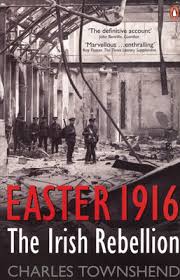
In "Easter 1916," Yeats asserts that
VOL- 3 ; ISSUE- 4, PUNE RESEARCH - An International Journal in English (ISSN 2454-3454) JIF 2.14
3.4.25 ENGLISH

The thirty-seven Shakespearean plays consist of the greatest, the most varied and the perfect work ever done by any man in literature. Any work, however, beautiful, seems monotonous after Shakespeare. He was free from every theory. He accepted all of life, rejected nothing. He united the real and the ideal. He appealed to the most varied men to a rude worker as well as to a wit. Shakespeare’s drama is a great river of life and beauty. All who thirst for art or truth, comic or serious, ecstasy or satire, light or shade, can stoop to drink from its waters, and in their changing moods they will find a drop to quench their thirst.
VOL- 3 ; ISSUE- 4, PUNE RESEARCH - An International Journal in English (ISSN 2454-3454) JIF 2.14
3.4.26 ENGLISH
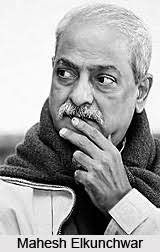
The present paper aims at analysing the translated play entitled Flower of Blood written by Mahesh Elkunchwar. It was originally drafted in Marathi by the title Rakta Pushpa (1972). This play has various themes, but especially it focuses on the relationship between family members, such as mother-daughter, father-daughter, husband-wife, and a boy-girl. And when the death of a family member takes place, it changes lots of things, sometimes due to this mishap family members get more close to each other and sometimes everything shatters. Flower of Blood is a play that shows how a death of the son breaks the mother, sister and father and due to this, the relationship gets complicated between them. The complications become unbearable when an outsider takes the place of that dead son. The point of view of everyone towards the boy is different. The present paper is an attempt to focus on why the intimacy has lost, and bitterness came among the family members, how and why sexuality becomes a major concern between daughter and mother relationship and reaches its peak, the lacking of mutual understanding in marriage, etc.
Keywords: Libido, fixation, repression, menstrual cycle, menopause
VOL- 3 ; ISSUE- 4, PUNE RESEARCH - An International Journal in English (ISSN 2454-3454) JIF 2.14
3.4.27 ENGLISH
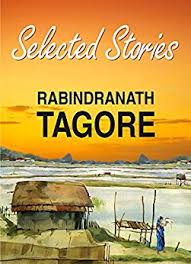
This paper tries to explore the protagonist’s (girl) hidden voice reflecting in the narration of the short story—‘The Skeleton’(1926), written by Rabindranath Tagore. It focuses on the issue of how a female’s individuality is crushed by social conventions. The story explores the tension in a human-life as it takes the readers into inner realm of the girl’s unconscious mind where they find her constantly tussling with the existing position with a desire to find her ‘Self’ and to lead a life full of love and satisfaction with a partner but her life ends with a tragic turn as she commits suicide to unite with her lover (one-sided love)in Infinite, unknown place of Death where no one will curb her desires. So, the story with a powerful narration and a systematically planned way moves and makes a dead character alive, and leaves a memorable impression on readers’ minds. This paper intends to reflect on various aspects regarding the theme, characterization, narration and the hidden massage.
Key words-- Individuality, ominous, lifeless, throbbing life, traumatic behaviour, narcissism, involvement, social taboos.
VOL- 3 ; ISSUE- 4, PUNE RESEARCH - An International Journal in English (ISSN 2454-3454) JIF 2.14
3.4.28 ENGLISH
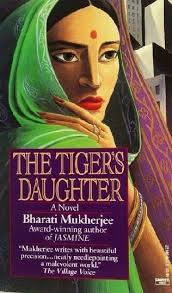
Bharati Mukherjee, a key post-colonial writer, wove her novels around the disillusionment of the exiles and the exultation of the immigrants, particularly South Asian Women. Mukherjee’s entire fiction is characterized by variations on the themes of immigration, displacement, and re-creation of identities. The characters, their locale, and their quests vary, but each case she is concerned with “making of Americans”. In her first novel, The Tiger’s Daughter, Mukherjee, exposes the exiled condition of the protagonist, Tara Banerjee Cartwright. Tara, an Indian student from Calcutta, marries an American and returns home for a visit. Life in Calcutta, beset by labor unrest and political upheavals, is no longer what she cherished when she was in America. Her experiences lead her to shed the romantic vision of India that had sustained her during her periods of homesickness in foreign. Realizing that she no longer fits in the old environ, she longs to return to her adopted land, America. Through this analysis, it has been observed that Tara’s inability to respond to the cultural differences makes her an unaccustomed exile in her home, Calcutta.
Key Words: Exile, Alienation, Homesickness, Longing, Disillusionment.
VOL- 3 ; ISSUE- 4, PUNE RESEARCH - An International Journal in English (ISSN 2454-3454) JIF 2.14
3.4.29 ENGLISH
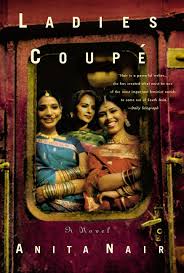
Anita Nair is a contemporary Indo-English novelist who has presented the quandary of Indian woman. Anita Nair is an Indian bestselling author of fiction and poetry, with her prominent novels, The Better Man and Ladies Coupe translated into 21 languages. The common themes dealt by her are centred on women’s distress, suppression, repression, disappointment, sexuality, freedom, estrangement, identity crisis, caste discrimination, transgression, mother infidelity, emotional insecurity, social, psychological and emotional issues. Anita Nair is very keen in probing and exposing the inner strength and desires of women. She sketches the status of women in the families as well as in the society. Anita Nair, through her famous novel, Ladies Coupe, elegantly projects trials and tribulations of the protagonist and her final self-assertion, along with, five women characters. The present paper reveals the truth that the women should retain their dignity and fulfil their desires to attain autonomy.
Key Words: Suppression, Identity, Dignity and Desires, Autonomy
VOL- 3 ; ISSUE- 4, PUNE RESEARCH - An International Journal in English (ISSN 2454-3454) JIF 2.14
3.4.30 ENGLISH
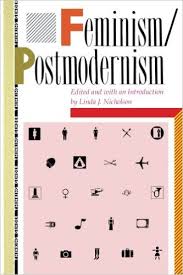
The primary aim of my article is to undertake an analysis as to how Alice Borchardt, a renowned American novelist, interacts with history, with feminist concerns. The interaction is one post-modernist demonstration of art which permeates the narratives of the recent times. I consider Alice Borchardt The Dragon Queen as one specimen of postmodern feminist art which has incorporated a wide variety of the postmodern discourse. Within the parameter of my analysis I have attempted to demonstrate how her novel The Dragon Queen excavates the very real history of history as “a complimentary perspective from which to view the recent revival of interest in questions of history in literary studies in the United States (Montrose 25). I infer that by problematizing history. Alice Borchardt carves out a new worth, a new response and a new deliberation in her text.
VOL- 3 ; ISSUE- 4, PUNE RESEARCH - An International Journal in English (ISSN 2454-3454) JIF 2.14
3.4.31 ENGLISH

In postmodernism, the individual's cutting off from ontological essence, the loss of essence and meaning of existence itself are no longer considered a tragedy ands undoubtly abrasive environment effected by the rapid advancements in the fields of Science and Technology. The inevitable influence of Media, especially the Television, the Video and the Computer, has narrowed down, not merely the geographical but also the physical and mental edges of living. Postmodern, hyperrealist, magic realist and all the other experimental types of writing have primarily focused on this problem reflected in fictional characterization, authorship and intentionality, reception and readership, narrative technique, style, genre and thematic overlaps. Thomas Pynchon (1937- ), and john Barth (1930) the two representatives of Postmodern American writers, depict the plight of contemporary humanity caught in labyrinthine, and their novels such as V and THE Floating Opera are quite symptomatic of this chaotic situation.
Key Words: Modernity, Post- modernity, Identitya, Reality, Media
VOL- 3 ; ISSUE- 4, PUNE RESEARCH - An International Journal in English (ISSN 2454-3454) JIF 2.14
3.4.32 ENGLISH

In speaking generally, there are two types of language learners: the first type gets really worried about making errors or mistakes. They think about everything that they say carefully. Sometimes, if they start to say something, and then realize they have made a mistake, they will stop and correct that mistake, maybe returning to the beginning of the sentence. They might pause between each word, contemplating what the right word or phrase is before they say it. For these learners, generally, their accuracy is high, but their fluency is low.
VOL- 3 ; ISSUE- 4, PUNE RESEARCH - An International Journal in English (ISSN 2454-3454) JIF 2.14
3.4.33 ENGLISH
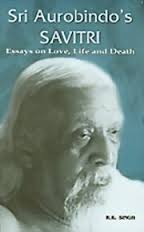
The main objective of this investigation is to look at Sri Aurobindo's masterpiece Savitri as a feminist epic where the female character, Savitri plays a pivotal role breaking the conventional trends of the contemporary society and literature where male characters dominate in the domain. Usually women are taken into consideration as inferior to men socially, biologically, financially, psychologically, and also religiously. Feminism demands women 's liberation and the rights of women on the ground of the equality of the sexes. This article has been attempted to probe deeper into the story in order to bring out the evidences which will establish the final confirmation regarding Savitri as a feminist epic.
Keywords: Feminism, Liberation, Discrimination, Marxism, Capitalist
VOL- 3 ; ISSUE- 4, PUNE RESEARCH - An International Journal in English (ISSN 2454-3454) JIF 2.14
3.4.34 ENGLISH
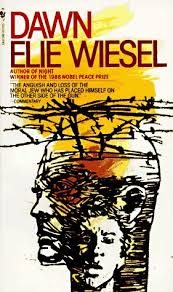
Elie Wiesel's novel includes psychological insight into the mind of a Holocaust survivor. Being a holocaust survivor, Wiesel, in his works, renders a clear cut picture of the haunting he had experienced in the concentration camps. He tries to bond with the readers using his character development. Wiesel’s way of storytelling is quite raw, genuine and petrifying. He describes how the cruelties from the past day still petrify to haunt the present day contentment of the characters he crafted in his works. “Dawn”, a novel by Wiesel is of such instance. Elisha, a holocaust survivor is haunted by the memories of his family back in the eastern Europe. His memories of them, as well as their influences, remain with him as he comes to know the the fact that he has to kill an innocent man whom he doesn’t know. Elisha is afraid to know the man, but he is compelled to learn more about him and kill him by dawn, before the day breaks. Wiesel fades back and forth between the present and the past to show how Elisha's life as a Holocaust survivor affects his current situation. His experiences at Buchenwald made him witness so much death and he realizes how precious life is.
Key words: Jewish, Holocaust, Culture, War, Relationship, Values, Sufferings, Identity
VOL- 3 ; ISSUE- 4, PUNE RESEARCH - An International Journal in English (ISSN 2454-3454) JIF 2.14
3.4.35 ENGLISH
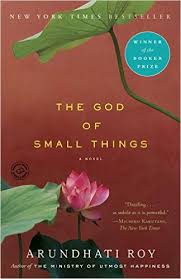
The God of Small Things was the debut novel of an eminent Man Booker Prize winning author Arundhati Roy. The novel explores the childhood experience of fraternal twins by adopting the Bildungsroman techniques as narrative pattern. It explores the themes of social discriminations, class relations and cultural tensions, Indian history and politics, forbidden love, betrayal, etc. The novel is rich from the point of Narrative pattern and its techniques. Roy applies traditional, as well as, innovative techniques to build a story which reflects Indian consciousness. Narrative technique is the method and device used by writers to narrate stories. It works upon specific uses of phrases, punctuations or exaggerations of description. Roy, in order to narrate the novel, uses literary devices like- defamiliarization, similes & metaphors, repetition of words and phrases, epigrams and paradoxes, irony, oxymoron, metonymy, synecdoche, pun, saying versus showing in her writing, flashback narrative technique. She also uses some sound oriented techniques like- rhythm, alliteration, internal rhyme, assonance, dissonance, etc. The content of Arundhati Roy's writing basically focuses on feminist perceptions, post-colonial dimensions, politics, literary tourism and her Indianness.
VOL- 3 ; ISSUE- 4, PUNE RESEARCH - An International Journal in English (ISSN 2454-3454) JIF 2.14
3.4.36 ENGLISH
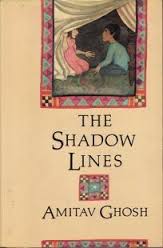
The word ‘journey’ or ‘voyage’ has basic sense of ‘moving away’ i.e. transportation. It can be either ‘bodily’ or ‘metaphorically’. Journey involves both the physical as well as psychological notions. The bodily movement has the elements of adventures, exploration and roaming. Human beings have instinct for adventure and an urge for innovation and discovery to go beyond in the realm of less known territory. There are instances in the human history about the forced exile, for some the journey was forced. The exile of Jews is a well known example of the large scale dispersion. The term ‘diaspora’ has been initially used in association with ancient Jewish diaspora i.e the exile of Jews outside of Palestine from 6th century B.C. There was large scale of dispersion, and with it brought the feeling of loss, memories of the past, the angst as the umbrella term diaspora involves concepts like loss of identity, angst, nostalgia etc. The psychological journey is of more subtle in nature which probes deep into the psyche. It deals with introspection, which essentially makes available the opportunity to change the whole being. Inner journeys involves exploration of the individual- its own self. A person can see through a inner journey, the changes and development taking place. Inner journeys gives new perceptions, matures the self and vision. Journey is the conscious endeavor to make changes within. Journeys helps in breaking the cocoons created by our own selves and venture in to the new world beyond ourselves. The experiences which we encounter as away from home are unfamiliar in nature. Journeys allow us to find the common culture, the universal perception of life, where we can associate with them though unfamiliar.
VOL- 3 ; ISSUE- 4, PUNE RESEARCH - An International Journal in English (ISSN 2454-3454) JIF 2.14
3.4.37 ENGLISH

Social interaction is very necessary to every individual, because only into the society one’s individual thoughts and actions reflect, “social overtones” (Phillips: 90) and he can modify his ways of thinking and behaviour. So it has been rightly said, “Society teaches us to be human” (Phillips: 90). Anita Deasi in her first novel Cry, the Peacock, projected the chief protagonist Maya, who is “a wayward and high strung child” (Desai: 48), an over protected by dotting father (Rai Sahib) was grown up as a privileged pampered child and strictly prohibited from social participation. In her father’s house, she lived “as a toy princess in a toy world” (Desai: 78), away from the bafflement of life. Living in a completely isolated and alienated world of her own dreams, imaginary and fairyland, she is totally deprived of real-life experiences. Moreover, due to over-protected and sheltered childhood, her maturity level does not correspond with her age.
VOL- 3 ; ISSUE- 4, PUNE RESEARCH - An International Journal in English (ISSN 2454-3454) JIF 2.14
3.4.38 ENGLISH

The diasporic and the female studies form an important and interesting area of research in the contemporary literary studies. Diasporic literature traces its roots in the migration of less privileged people to the promising new lands like America, British, Canada, Trinidad, etc. Migration is usually a phenomenon of the nation’s having a colonial history. The newly independent people migrated to the foreign lands in order to overcome the pricks of poverty and for a better promising future. The new lands proved a fecund plane for the material prosperity, it also proved an equally opposite to the psyche of these immigrants. The new lands had a readymade culture, customs, and norms for these immigrants. The newly migrated people thus found themselves caught between their native past, the alien present and the unknown future. Their psyches got everlastingly trapped in the intricate web of history and geography.
VOL- 3 ; ISSUE- 4, PUNE RESEARCH - An International Journal in English (ISSN 2454-3454) JIF 2.14
3.4.39 ENGLISH
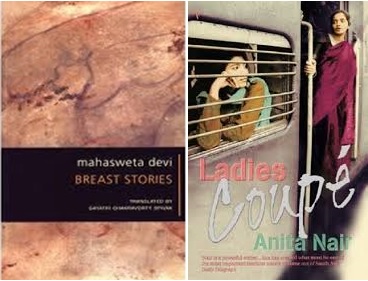
he present research investigates that paradigm shift and stereotype of women since three decades. The study has undertaken a short story and a novel of two contemporary women writers. Both writers have encapsulated the subaltern state of women: Jashoda- after her marriage, Akila- remains spinster, and Marikolunthu- victim of man’s lust and poverty. It shows that from dawn to dusk, suffering is like an essential organ of women, as body functions with the help of both internal and external organs. Feelings, emotions, and sufferings of protagonists are neither exaggerated nor diminished when it is encapsulated by women writers. Indeed, the notion of Julia Kerstiva, Elaine Showalter, and other feminists writers’ features towards woman becomes a mouthpiece of woman is succeed in male oriented/dominated society. The protagonist of Mahasweta Devi, Jashoda becomes a professional mother: a mother –by-hire. Further Anita Desai’s protagonist Akila remains spinster. It is identified that non-emancipation is common between Jashoda and Akila. In addition, they have trapped in the clutches of family through paradigm and stereotype of society.
Key words:- emancipation, subaltern, mother (profession), gender-suppression
VOL- 3 ; ISSUE- 4, PUNE RESEARCH - An International Journal in English (ISSN 2454-3454) JIF 2.14
3.4.40 ENGLISH

Within the context of English as a second language specially for engineers , using blogs has emerged as a language learning tool. However, how teachers effectively incorporate blogs within the confines of an instructional framework and what the current research shows about using blogs as a learning tool remain unsolved issues. Thus, the current paper presents a review of the research on the use of blogs in learning contexts. The study first introduces blogs and a theoretical framework for the use of blogs within the borders of the constructivist approach. Then, in accordance with the studies reviewed, the research is divided into the following sections: blogs and their types, their effect on interaction and communication, basic language skills, learners' motivation, perceptions and attitudes, and autonomous learning. In conclusion, while the current literature reflects that using blogs is a valuable and effective technique that can be readily used in the context of EFL, more research is necessary. Finally, the paper ends with practical recommendations for S teachers and researchers.
Key Words: Blog, blogging, blogger, teaching, English language ,second language, perception ,motivation, recommendation
VOL- 3 ; ISSUE- 4, PUNE RESEARCH - An International Journal in English (ISSN 2454-3454) JIF 2.14
3.4.41 ENGLISH
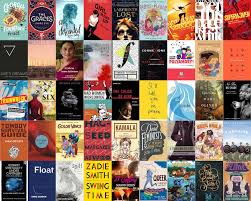
The woman has always been the subaltern across cultural boundaries. In the present day Indian context, when the impact of Western feminism is being felt strongly, the response to feminist discourse has been varied. Feminism in the Indian context is very different from that of the West in terms of tradition, culture, class, race and gender. Women are shown to be adhering to the roles handed over to them by patriarchy. This paper is an attempt to explore the cultural oppressions in the patriarchy in the context of India and the West and analyse the male domination on literary and cultural traditions.
Key Words: Feminism, Patriarchy, India, West.
VOL- 3 ; ISSUE- 4, PUNE RESEARCH - An International Journal in English (ISSN 2454-3454) JIF 2.14
3.4.42 ENGLISH
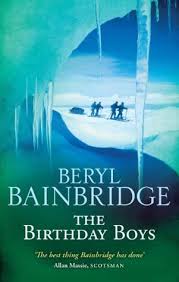
This research article aims to understand the role of autobiographical memories in the life of characters of Beryl Bainbridge’s The birthday boys. The concept of autobiographical memory and its functions is drawn from the book of H. L. Williams’ Autobiographical memory. It also referred from the article of S. Bluck’s, "A tale of three functions: The self-reported uses of autobiographical memory". This research article also attempts to verify the drawn functions of autobiographical memories in respect of Captain Scott, Uncle Bill, Taff Evans and Capt. Oates and Birdie Bowers. The novel principally renders an imagined account of Capt. Robert Falcon Scott's expedition to the South Pole in 1912, told in the voices of Scott and four men who followed him to their deaths. In each account a birthday is celebrated, or mentioned therefore the title. As a popular imagination, the Antarctica expedition holds a prime place in the novel. It is an example of man’s hubris1 in the face of the power of nature. This paper argues that the functions of autobiographical memories are fore grounded in the novel through the principal narrators and characters of the novel.
Keywords: Hubris, autobiographical memories, directive functions, social, functions, self-representative functions, adaptive functions.
VOL- 3 ; ISSUE- 4, PUNE RESEARCH - An International Journal in English (ISSN 2454-3454) JIF 2.14
3.4.43 ENGLISH
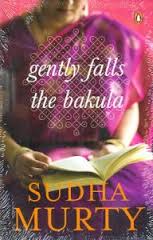
Change is the statute of life. Traversing this change, Indian English literature has travelled a lengthen voyage to reach its magnificence and stateliness. Along with this journey, the status of women all over the world has also been undergoing a rapid transform in recent times. By tradition, the Indian women accepted the frame work of family with blind faith and ever showed a spirit of rebellion. But slowly the times have moved and they started moving towards attainment of self hood and independence. The present paper spotlights how the self-centered notion of her better half makes her to take toll once more as a self-interested and ambitious woman.
Key words: sacrifice, perseverance, self-interest, ambition
VOL- 3 ; ISSUE- 4, PUNE RESEARCH - An International Journal in English (ISSN 2454-3454) JIF 2.14
3.4.44 ENGLISH
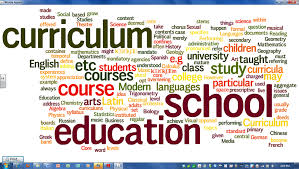
Numerous colleges have brought Humanities subjects into the Engineering streams tuned in to patterns honed comprehensively. Engineers need to teach the soul of humanities to procure camaraderie, basic reasoning and furthermore critical thinking capacities for professional success. Language aptitudes engage Engineers to face future difficulties all inclusive. In India likewise, Communicative English and Business English/Professional English have been coordinated into the Humanities stream of under grade projects in all Engineering colleges. Under this foundation, this exact review, analyses the issues identified with syllabus composed in the current educational program of English language through Survey overview which was managed to 770 students from 20 colleges. Ten things Survey dispassionately intended to examine three distinct parts of the course intended for specialists. Firstly, to discover how the execution of the syllabus coordinates the language, adapting needs of the students of the computerized age. Besides, to analyse the educating philosophies of four language aptitudes of Listening, speaking, reading and writing lastly to research how far the students favoured lab classes to hypothesis classes. On the premise of the reactions evoked, the viewpoints identified with their quick need of a learner focused educational modules are spoken to through graphical information for better elucidation. The examination, hence, went for tossing light on the qualities and shortcomings of the current framework and the need to conceive an outlook change for planning worldwide engineers with regard to quick developing circumstances around the globe.
Keywords: Syllabus scheme; English for engineering purposes; need analysis; learner focused educational modules; technical writing; language lab activities
VOL- 3 ; ISSUE- 4, PUNE RESEARCH - An International Journal in English (ISSN 2454-3454) JIF 2.14
3.4.45 ENGLISH
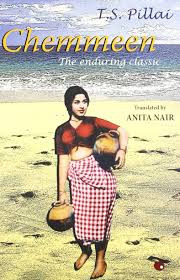
Every language is affluent with the classical works. They glorify the cultural and traditional life of the state, nation or continent. Chemmeen, a novel written in Malayalam, presents an interesting story of the love affair of a young pair and the predestined life of fisherfolk. This novel has been translated into many Indian and European languages. The present study focuses on the merits and demerits of the translation in English and translation in Tamil.
Key words: Classical Works – Culture – Tradition – Demerits in Translations.
VOL- 3 ; ISSUE- 4, PUNE RESEARCH - An International Journal in English (ISSN 2454-3454) JIF 2.14
3.4.46 ENGLISH

Nissim Ezekiel's poetry is reflective of his background and the peculiar circumstances he finds himself in. A Bene-Israeli Jew by birth, he does not identify himself with all the cultural aspects that are ascribed the term Indian. He also feels alienated with the physical environment around him in the sense that he has hardly anything positive to say about it and describes his environment in unappealing terms. Still his conscious identification with the environment of the country and the city of Bombay he was born in resonates throughout his poetry. He reiterates again and again in his poetry that he has nowhere else to go and cannot leave the place of his birth. He accepts it as his own place. As such, alienation in his poetry accompanies with a feeling of belongingness.
Keywords: Alienation, reconciliation, Indian poetry in English, environment, identification.
VOL- 3 ; ISSUE- 4, PUNE RESEARCH - An International Journal in English (ISSN 2454-3454) JIF 2.14
3.4.47 ENGLISH
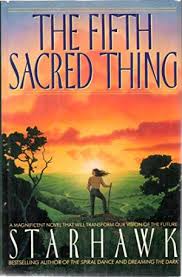
The world of vigilant women careful about environment and its interrelations with social, political and economic, scientific and technological impacts demands an end to all the types of interconnected oppressions of sex, race, class and nature, apparently, it is an interdisciplinary movement called ecofeminism which makes a call for a new way of thinking about nature, politics, economy, science, technology as well as spirituality. This movement with all its novelty, thought and activism can be hoped to rejuvenate and protect the mother earth from all human assaults-scientific problems. In a sense, this paper studies how the unflinching ecological concern permeates The Fifth Sacred Thing with diverse ecological components widely used for weaving a network of intricate relationships. So the layers would be peeled out to understand The Fifth Sacred Thing as a complex symbol of ecological concerns connecting Nature and culture to reconstruct Nature. Besides, since it is a literary study, it is assumed that ecological problems are not only scientific problems but objects of cultural analysis. Therefore, an effort is being made to evaluate The Fifth Sacred Thing in terms of its coherence and usefulness as responses to the environmental crisis.
Keywords: Air, Ecofeminism, Ecological Concerns, Fire (Energy), Soil, Water
VOL- 3 ; ISSUE- 4, PUNE RESEARCH - An International Journal in English (ISSN 2454-3454) JIF 2.14
3.4.48 ENGLISH
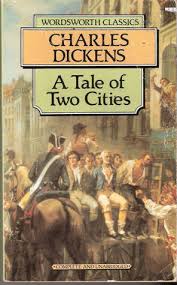
Charles Dickens’s A Tale of Two Cities is generally considered as the most successful historical novel ever written in English Literature. In this novel Dickens brings out the historical side of the Victorian age with examples and details of the French Revolution and the Victorian revolt. His vision of revolution was probably influenced by a personal day dream only he can fathom. But he is able to render his day dream in terms of publicly Victorian iconography. It is not a revolutionary novel in the sense of political revolts but in terms of social revolts. It covers not only two historical revolutions but also two generations with many similar problems and revolts of their own. Therefore, an attempt has been made by the researcher to analyze the novel from historical point of view.
Keywords: Historical, Political, Revolution, Revolts, Victorian.
VOL- 3 ; ISSUE- 4, PUNE RESEARCH - An International Journal in English (ISSN 2454-3454) JIF 2.14
3.4.49 ENGLISH
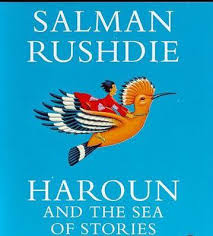
Freudian psychoanalysis works upon the notion of the ‘unconscious’ – a mind beyond the surface-consciousness. Associated with this is the ‘dream work’ – a process by which real events or desires are converted into dream images. Yungian view associates wish fulfillment and the projection of an ideal ego with collective unconsciousness. That repressed elements can find expression through art and that self-realization comes through divergent experiences in reality and in dreams have been suggested in Rushdie’s Haroun and the Sea of Stories. At the outset the novel is that of a story teller Rashid, but his predicaments, his loss of gift of gab objectify the hardships that of an artist. For most of the part the story is mired in fantasy as most of the action takes place in their dreams. The allegory of ‘Gup’ city and ‘Chup’ city and the ‘Ocean of Stories’ and the ultimate restoration of the story-telling power mark a tripartite Freudian journey from id to ego. Soraya, the wife represents the realistic world of consciousness and it is through the expression of his unconscious desires that Haroun is able is able to get over his psychic block. Further, the author’s allusion to the Arabian Nights connotes a journey and mythic representation of the individual seeking a way for self-reflection and self-assertion.
Key Words Psychoanalysis, Freudian, unconscious, id, ego, super-ego, stories, fantasy, Kahani, story-telling, ocean of stories
VOL- 3 ; ISSUE- 4, PUNE RESEARCH - An International Journal in English (ISSN 2454-3454) JIF 2.14
3.4.50 ENGLISH

Robert Galbraith is the
pseudonym of the famed J.K. Rowling. Rowling has adopted a male pseudonym to
write her detective fiction. Her first novel under the pseudonym was The
Cuckoo’s Calling (2013). It is the first novel of the Cormoran Strike series
and this was followed by two more novels The Silkworm (2014) and Career of Evil
(2015). When asked about her favourite of the three novels, Rowling answered as
follows: “I have loved writing all the books so far, but I think the latest,
Career of Evil, has to be my favourite. It was an incredible amount of work,
but I thoroughly enjoyed developing the plot, whilst giving the reader a little
more about Strike and Robin. It was fun too weaving in the great lyrics of Blue
Oyster Cult” (robert-galbraith.com). And as she has said, we get a more about
Robin in this novel and about the kind of work Strike did when he was in the
SIB. Career of Evil is a pure hard-boiled detective fiction which deals about a
serial killer. The aim of this paper is to critically analyse the novel Career
of Evil which made Cormoran Strike, a household name.
VOL- 3 ; ISSUE- 4, PUNE RESEARCH - An International Journal in English (ISSN 2454-3454) JIF 2.14
3.4.51 ENGLISH

Proficiency in English language in today’s global world opens doors to worldwide technology and commerce. Effective language skills empower professionals to face challenges in academic as well as professional lives. So, language should be learnt inside the classroom to use it in the outside world. The objective of any language classroom is to get the learners use the language with competency. The role of a language teacher is to expose learners to the target language by giving them continuous practice through various language activities while ensuring learner’s interest and motivation. This is possible when learners are truly engaged in the learning process through different activities/tasks. This paper focuses on the role of activities/tasks which are tailor-made to the needs of the learners in order to ensure their active involvement in the learning process instead of just imparting knowledge monotonously. Such a classroom adds variety to regular, passive learning and improves the efficiency of the learners thus creating a positive environment for language learning.
Key words: language skills, communicative competence, activities/tasks, language learning, tailor-made
VOL- 3 ; ISSUE- 4, PUNE RESEARCH - An International Journal in English (ISSN 2454-3454) JIF 2.14
3.4.52 ENGLISH

Start-ups have emerged as a dynamic and vibrant sector of the Indian economy. Information Technology (IT) is playing a vital role in enhancing the productivity and competitiveness of these ventures. In recent years, start-ups like Flipkart, Snapdeal, Grofers, Ola, OYO etc have proved that there is an enormous potential for start-ups to grow in India. Social media has given immense power to consumers and transformed individuals around the world from passive recipients of information and products into active creators of content who are able to actively and immediately communicate with one another with the help of social media. The study would focus on the impact of social media on the success of start-ups in India.
Keywords: Social Media, Start-ups,
Entrepreneurship, Entrepreneurial performance, Social media marketing, Productivity,
marketing tool,
VOL- 3 ; ISSUE- 4, PUNE RESEARCH - An International Journal in English (ISSN 2454-3454) JIF 2.14
3.4.53 ENGLISH
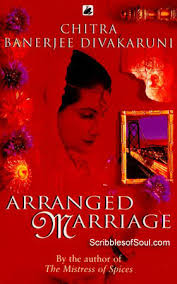
Arranged Marriage is an anthology of short stories published in 1995 by
Chitra Banerjee Divakarun, and it contains ten stories. Chitra Banerjee
Divakaruni is an immigrant writer whose stories deal with the life of Indian
immigrants in America, especially women immigrants in America. As orthodox
Indian women, they are unable to adapt themselves to the American culture,
which they think has no value. Free society, sexual freedom, cohabitation,
neglect of parents and elders are unheard of in India, and when an Indian
immigrant woman makes an encounter with such factors in America, she is shaken
mentally and cultural conflict crops up in her resulting in a quandary in which
she remains indecisive. Some women refuse to adapt and they suffer, and return
to India or accept their destiny
VOL- 3 ; ISSUE- 4, PUNE RESEARCH - An International Journal in English (ISSN 2454-3454) JIF 2.14
3.4.54 ENGLISH

Multi National Companies are looking for young Engineers who have command over Soft Skills as well as effective Communication skills. Every year thousands of B.Tech Graduates are appearing for Screening Written Test and H.R.Round oral test to enter in to Global Soft ware Companies. Among them, many get through Technical and other written subject easily. Thousands of Engineering Graduates are getting problems while facing H.R. Round. This is because, up to+2 Level only Group subjects are given the most priority in Academic evaluation. Languages are completely neglected. It is the main cause of the Students is having no minimum basics in Communication Skills, Inter Personal Skills, Group Discussion and Interview facing skills. To provide minimum basic concepts to get the main points immediately to get better jobs for M.N.C.Companies.
Key Words; multi national, inter personal, group discussion, H.R. Interview
VOL- 3 ; ISSUE- 4, PUNE RESEARCH - An International Journal in English (ISSN 2454-3454) JIF 2.14
3.4.55 ENGLISH
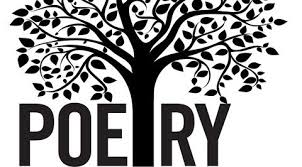
Formalism is a mode of critical enquiry which investigates literature against its form. It concerns only about the significance of form. Poetry is a genre, form of which plays a crucial role in conveying the theme. Hence this paper is an attempt to relate formalism and poetry. Poetic forms are distinct to each literature and language. This would illustrate the importance of form in poetry in a comparative perspective. This would throw light upon the relationship between Tamil and English poetic forms.
VOL- 3 ; ISSUE- 4, PUNE RESEARCH - An International Journal in English (ISSN 2454-3454) JIF 2.14
3.4.56 ENGLISH
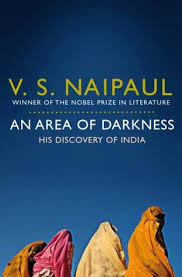
The travelogue, An Area of Darkness is Naipaul's journey of an endless
agony of belongingness, despondancy and insatiable quest for his identiy. He is
a man of predominanlty three worlds. His first world was Trinidad where his
grand parents and parents were brought as an indentured labourers and where he
was born. Trinidad was a deep unhealing wound and perpetual humiliation for him
which reminded him of the colonizer's exploitation and inhuman treatment. The
second world was London where he went for his higher studies and started
working for BBC. It was the world which was beautiful, well fed, dazzling,
civilized and powerful. It was the crown of the developed Europe with all its
royalty, dignity, grace and glamour. The third world for him was India, his
forefathers homeland which was his last hope for pride and belongingness, a
final resting place for his imagination but unfortunately in India too he
suffered, wounded and tumbled in darkenss for his belongingness and existence.
He is disillusioned and finds himself rootless and homeless in all the three
worlds. His soul was tossed between these three worlds.
VOL- 3 ; ISSUE- 4, PUNE RESEARCH - An International Journal in English (ISSN 2454-3454) JIF 2.14
3.4.57 ENGLISH
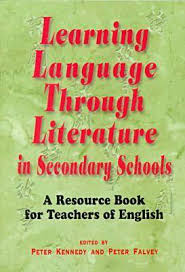
Language is placed in our life as an essential need like food, dress and
dwell. In countries like our
VOL- 3 ; ISSUE- 4, PUNE RESEARCH - An International Journal in English (ISSN 2454-3454) JIF 2.14
3.4.58 ENGLISH

The word “culture” is derived from the word ‘cultivate’ which means to grow, to develop and to
expand. Thus growth of life according to set traditions and values of the land
is the culture of the country. “Culture is the sum total of everything that is
created, as modified through conscious or unconscious behaviour of two or more
interacting individuals." When two human beings with diverse ethnic
backdrop of heredity, conventions and a way of life, come into contact with
each other they are bound to act and react with each other which can be defined
as cross culture conflicts. The conflict can operate at social as well as
personal level. In fact, the "clash of cultures" has been quite a
pronounced theme of the Indo-English novel.
Mulk Raj Anand's fiction has been
shaped by what he himself refers to as double burden on my shoulders, the Alps
of the European tradition and the
Himalayas of Indian past. Raja Rao in The Serpent and the Rope contrasts
oriental and occidental world views in respect of basic issues such as sex,
marriage, society, religion etc. a theme of East-West encounter while in
Nayantara Sahgal's, A Time to be Happy
Meenakshi Mukherjee sees the conflict between the East and the West very
obviously spelled out. Kamala Markandaya's fiction probes the conflict between'
two modes of life, the Western and the Oriental. The paper showers light on the
themes of cultural conflicts in the major works of Ruth Prawer Jhabvala’s , “Heat & Dust”,
where , Olivia’s cultural encounters in India .
VOL- 3 ; ISSUE- 4, PUNE RESEARCH - An International Journal in English (ISSN 2454-3454) JIF 2.14
3.4.59 ENGLISH
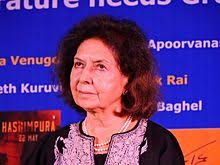
When Nora banged the door and stepped into the night in Ibsen’s The
Doll’s House, she awakened to the harsh realities of the doll’s house in which
she had lived for years, where she had been treated as a mere object catering
to the needs of her husband and children without uttering a word. But little
did she know that her opening the door to the life of freedom paved the way for
women all over the world to think about their place and identity in this
androcentric world. The woman who has hither to spent her time and energy in
nurturing children and looking after her husband, in maintaining social and
familial relationships suddenly wakes up to intense introspection and discovers
her status of being a non entity in her family and society as well. Even in
this so-called advanced technological world the woman in India is subjected to
a grim existence devoid of self respect: as a child she is sold off to
foreigners for a bridal price, as a young woman she comes as a supplier of
dowry to her husband’s house and as a widow she is relegated to the position of
an unpaid servant living in the land of the dead.
VOL- 3 ; ISSUE- 4, PUNE RESEARCH - An International Journal in English (ISSN 2454-3454) JIF 2.14
3.4.60 ENGLISH
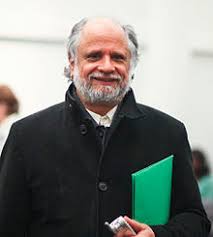
Homi K Bhabha's writings in postcolonial hypothesis owe much to post
colonialism. According to Bhabha, one should consider expansionism to be clear
mistreatment, control, and viciousness just additionally as a time of
unpredictable and shifted social contact and collaboration. His writings bring
assets from scholarly and social hypothesis to the investigation of provincial
files. Even his writing affected the literature and number of writers as well.
The present paper explores the impacts of Homi K Bhabha’s thought on Indian
Literature and writers. Hence, this paper explores how Homi K Bhabha’s thought bring
changes into the post-colonial Indian literature and how it affected the
writers.
Keywords: Postcolonial literature, post-colonial writers.
VOL- 3 ; ISSUE- 4, PUNE RESEARCH - An International Journal in English (ISSN 2454-3454) JIF 2.14
3.4.61 ENGLISH
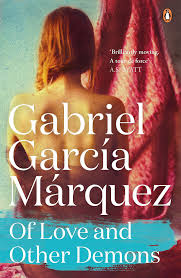
This paper highlights the brutal treatment against an innocent girl. It
showcases the violence against the girl, Sierva and her fear. It also
penetrates deep to bring out the sufferings of women in and around the world to
the broad daylight. Garcia Marquez presents not only the sufferings of the
girl, but also the blind belief of the people in the name of religion and also
attacks the existence of cultural practice in his homeland. It concludes by
stating that women should overcome from their sufferings than accepting it as a
fate.
VOL- 3 ; ISSUE- 4, PUNE RESEARCH - An International Journal in English (ISSN 2454-3454) JIF 2.14
3.4.62 ENGLISH
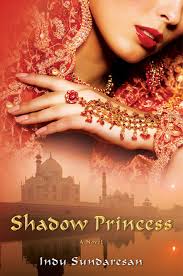
Shadow Princess is a brilliant art work of Indu Sundaresan. Indu
Sundaresan depicts the story of Mughal India after the death of Mumtaz Mahal. The
central character Jahanara is depicted entirely from a women’s point of view by
the author. Princess Jahanara became powerful after her mother’s death and was
never allowed to marry. There is an ideal relationship between the father and
the daughter throughout this novel. Indu Sundaresan uses Princess Jahanara as a
stunning icon in her novel.
VOL- 3 ; ISSUE- 4, PUNE RESEARCH - An International Journal in English (ISSN 2454-3454) JIF 2.14
3.4.63 ENGLISH
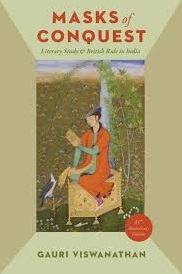
The present article is a humble effort to explore as to how using Antonio
Gramsci’s concept of ‘hegemony’ Gauri
Viswanathan has argued in her first and popular work, Masks of Conquest:
Literary Study and British Rule in India (1989), that the English-Literary
canon in India was an imperial tool, a method by which a collaborating class
was brainwashed into accepting the cultural superiority of Britain. Exploring
that the religious conversion had ever been a clever step, she astutely strives
reading between the lines, and shrewdly sees in it both a mode of resistance
and an alternative epistemology. She has ever been popular about her views on
issues like Colonialism, Hinduism, and the problems of Historiography. One of
Gayatri Spivak's colleagues at Columbia, Gauri Viswanathan, whose official
title is "Class of 1933 Professor in the Humanities" visits India regularly and, like many of
these global scholars, astutely inhabits something inclusive that could be
called East -West.
VOL- 3 ; ISSUE- 4, PUNE RESEARCH - An International Journal in English (ISSN 2454-3454) JIF 2.14
3.4.64 ENGLISH
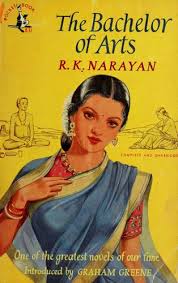
Indian English Literature is written by Indian people in English. It
could be in the form of poetry, prose, fiction or drama. English is not our
mother tongue and we are not native speakers of English, yet when in the early
decades of the nineteenth century, English was introduced as the medium of
instruction in our educational system, Indians were able to read Western
literature that was available in English. They found the language and the
literature versatile and some intellectuals took to conveying their social and
religious thoughts in this language. The writings of people like Raja Ram Mohan
Roy, Swami Vivekananda, Mahatma Gandhi and others started pouring in and gave
rise to a body of prose literature having great socio-cultural relevance. Soon
poets like Toru Dutt and many others took to writing poetry in English. But
this literature was highly influenced by the style and content of English
literature.
VOL- 3 ; ISSUE- 4, PUNE RESEARCH - An International Journal in English (ISSN 2454-3454) JIF 2.14
3.4.65 ENGLISH

Listening to second language has been regarded as the most widely used
long skill in normal daily life. It involves a complex process that allows us
to understand and interpret spoken messages in real time by making use of a
variety of sources such as phonetic, phonological, lexical, syntactic, semantic
etc. Given the complexity that underlines this process of listening has been
considered most difficult skill to learn out of the four skills.
VOL- 3 ; ISSUE- 4, PUNE RESEARCH - An International Journal in English (ISSN 2454-3454) JIF 2.14
3.4.66 ENGLISH
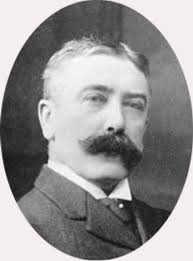
Listening to second language has been regarded as the most widely used long skill in normal daily life. It involves a complex process that allows us to understand and interpret spoken messages in real time by making use of a variety of sources such as phonetic, phonological, lexical, syntactic, semantic etc. Given the complexity that underlines this process of listening has been considered most difficult skill to learn o Men have speculated on the origin of the speech from the very early times. The Hebrews considered it a gift from creator and similar views were held by ancient Egyptians, the Hindus, the Chinese, and others. Linguistics developed as a subject in late 18th century. Before this language study was the property of philosophers and grammarians. A serious interest in the origin of language was taken by number of scholars in the late 18th and 19th century. This came to be prominence in 1876, when an English man sir William Jones delivered a paper demonstrating that an ancient Indian language of Sanskrit bore striking structural similarities to Greek, Celtic, Latin and German languages. These discoveries compelled/ forced scholars to trace out the original ancestral language. Comparative linguistics became the dominant branch of linguistics enquiry. This branch compares the two different languages in terms of their phonological, morphological and syntactic aspects. These types of discoveries laid the linguistics to form an independent separate branch of study. If, we were to award credit of turning linguistics into a broad intellectual discipline, today there would be little disagreement in awarding it to the Swiss Linguist the Ferdinand De Saussureut of the four skills.
VOL- 3 ; ISSUE- 4, PUNE RESEARCH - An International Journal in English (ISSN 2454-3454) JIF 2.14
3.4.67 ENGLISH
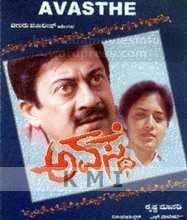
Avasthe is organized in
three different parts. In the first part, it is about the neatly filtered life
style and values of the protagonist Krishnappa. The characters of
Praneshacharya and Jagannatha from Samskara and Bharatipura respectively do not
have values that are imbibed. For Praneshacharya, he was the hire of the
culture he elieved in and Jagannatha gained them from the Marxist influence.
Unlike them, Krishnappa is a self made man and is very close to the modern
culture and so becomes the highlight of the novel.
VOL- 3 ; ISSUE- 4, PUNE RESEARCH - An International Journal in English (ISSN 2454-3454) JIF 2.14
3.4.68 ENGLISH
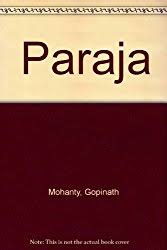
Gopinath Mohanty (1914–1991) a renowned Oriya writer who is known for portraying and interpreting
several dimensions of human existence especially within the context of Oriya
life seems to be dealing with the asserting ways of dissent both in the plains
and in the hills. Depicting the
divergent and distinct cultural identity which has been shaped by the tribal
people, in particular with their various kinds of celebrating the vibrant life
which has been beset with the hard-hitting miseries and adversities, Mohanty
has etched new annals in the history of dissent literature in India.
VOL- 3 ; ISSUE- 4, PUNE RESEARCH - An International Journal in English (ISSN 2454-3454) JIF 2.14
3.4.69 ENGLISH
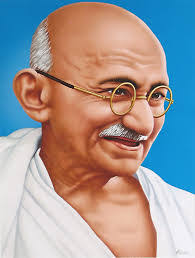
Mahatma Gandhi, the father of the nation gave ‘The Wardha Scheme of
Education’ or ‘Basic Education’ for modern India, which can be called the first
blue print of national system of education, which is job centered, value-based
and mass oriented. It is the first model of vocationalisation of education in
India. In Gandhian scheme of education, knowledge must be related to activity
and practical experience. His scheme of education envisages, a close
integration between the school and the community so as to make child more
social and co-operative. This scheme was the first attempt to develop an
indigenous scheme of education in British India by Mahatma Gandhi. As a
nationalist leader he fully realized that the British system of education could
not serve the socio-economic need of the country. So he had developed a
complete philosophy of education for the whole country. He had worked out it
after a good deal of experimentation based on his philosophy of truth and
non-violence.
VOL- 3 ; ISSUE- 4, PUNE RESEARCH - An International Journal in English (ISSN 2454-3454) JIF 2.14
3.4.70 ENGLISH
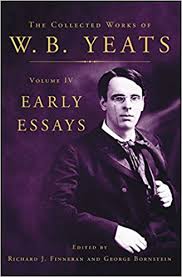
William Butler Yeats, (13 June 1865 – 28 January 1939) was an Irish
poet and playwright, and one of the foremost figures of 20th century literature.
A pillar of both the Irish and British literary establishments, in his later
years he served as an Irish Senator for two terms. Yeats was a driving force
behind the Irish Literary Revival and, along with Lady Gregory, Edward Martyn,
and others, founded the Abbey Theatre, where he served as its chief during its
early years. In 1923 he was awarded the Nobel Prize in Literature as the first
Irishman so honoured the Nobel Committee described as ‘inspired poetry, which
in a highly artistic form gives expression to the spirit of a whole nation.’
Yeats is generally considered one of the few writers who completed their
greatest works after being awarded the Nobel Prize; such works include The
Tower (1928) and The Winding Stair and Other Poems (1929). Yeats was a very
good friend of Indian Bengali poet Nobel laureate Rabindranath Tagore...
VOL- 3 ; ISSUE- 4, PUNE RESEARCH - An International Journal in English (ISSN 2454-3454) JIF 2.14
3.4.71 ENGLISH

Language and culture exists together and they are interdependant. If language emerges from culture, culture is strengthened by language. Our beliefs, customs and conventions fundamental principles of life, moral values and so on are cultivated by culture. If we want to know about any culture it is possible only through language. Hantrias (1989) defines that culture is the beliefs and practices governing the life of society for which a particular language the vehicle of expression. Culture influences us from birth. Unless and until a child is exposed to the surroundings the child cannot acquire anything. Brooks (1986) also observes that physically, mentally everyone is the same, while the interactions between the persons and groups patterns which emerge from these group behaviours and intractions will be approved of, or disapproved of. Behaviour which are acceptable will vary from location to location thus forming the basis of different cultures. Studying a laguage means understanding its culture as part of its learning. India occupies a unique position in the world because of its rich diversity of cultures and languges.
VOL- 3 ; ISSUE- 4, PUNE RESEARCH - An International Journal in English (ISSN 2454-3454) JIF 2.14
3.4.72 ENGLISH
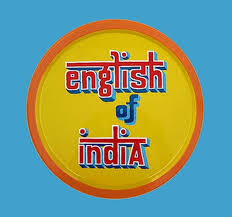
The aim of this research article is to stress up on the influence of ‘Indianism’ in English language spoken by Indian speakers and how they carry their mother tongue influence (MTI) on target language. It is well known fact that, Indians speak English differently from Native speakers that is why English is spoken by Indians named as Indian English. This article also highlights how Indian speakers of English deviate from Standard English in terms of pronunciation, grammar, use of idioms and phrases, titles, interjections and casual references and other strange and common usage.
Key Words: Indianism, Received Pronunciation, BBC English, Vernacular languages
VOL- 3 ; ISSUE- 4, PUNE RESEARCH - An International Journal in English (ISSN 2454-3454) JIF 2.14
3.4.73 ENGLISH
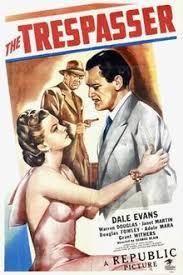
Lawrence’s second novel The Trespasser is not entirely his own creation
but a revision of some work by his friend Helen Corke. Yet it is a powerful
exploration of the destructive nature of love so commonly seen in his novels.
In this sense, it makes a further move in the direction discovered with his
first novel; and strongly foreshadows his later works. In the present novel,
also, he seems to be least reserved while giving vent to his bitter
antifeminist ideas, and with similar enthusiasm he unveils his ever-cherished view
once again that it is the woman who is to be held responsible for the downfall
and destruction of man. Like his previous novel, The White Peacock, The
Tresspasser, also, explores the destructive nature of love, now the victim
being Siegmund, a London musician, who, as a result of an unhappy marriage,
develops an extra-marital relationship with his former pupil, Helena. A man of
emotions and feelings, he has proved failure in practical life, and to get over
this impasse he turns away from this mechanical despair, to spend a few days
with Helena on the Isle of Wight.
VOL- 3 ; ISSUE- 4, PUNE RESEARCH - An International Journal in English (ISSN 2454-3454) JIF 2.14
3.4.74 ENGLISH

This paper attempts to interpret the Gordon’s ‘At Sixty Five’ from
narrative gerontological perspective. In the first part of the paper, it
introduces the narrative gerontology as a literary discipline. In its second
part, it argues that Gordon successfully illustrates the delusions of the youth
in the old age by juxtaposing two opposite forces that she had to encounter at
the onset of her old age. The paper appreciates how Gordon was successful in
conveying the first-hand female experiences of old age to the youth her times.
Key Words: Narrative Gerontology, Aging, Gordon, Sixty Five, Old age.
VOL- 3 ; ISSUE- 4, PUNE RESEARCH - An International Journal in English (ISSN 2454-3454) JIF 2.14
3.4.75 ENGLISH
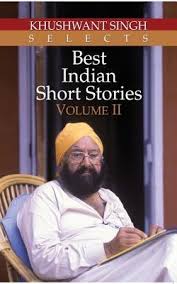
The present paper attempts to highlight the importance of fantasy in the
short stories of Khushwant Singh. The short stories selected for consideration
are ‘Death Comes to Daulat Ram’, ‘Posthumous,’ ‘Mark of Vishnu’ and ‘The
Memsahib of Mandla’. In all the above stories Khushwant Singh writes about the
theme of fantasy. The Memsahib of Mandla,” deals with a theme of fantasy and
introduces the reader the story of a ghost moving around in a rest house. In
the story Posthumous Singh fantasies his own death and presents detailed events
until the end of his mortal journey to the funeral ground. In the story Death
comes to Daulat Ram Singh fantasizes Daulat Ram’s dead father waiting at the
threshold of his house. In the story Mark of Vishnu Singh fantasizes the
religious fundamentalist, Gunga Ram waiting for Cobra the Kala Nag until he
meets his tragic end.